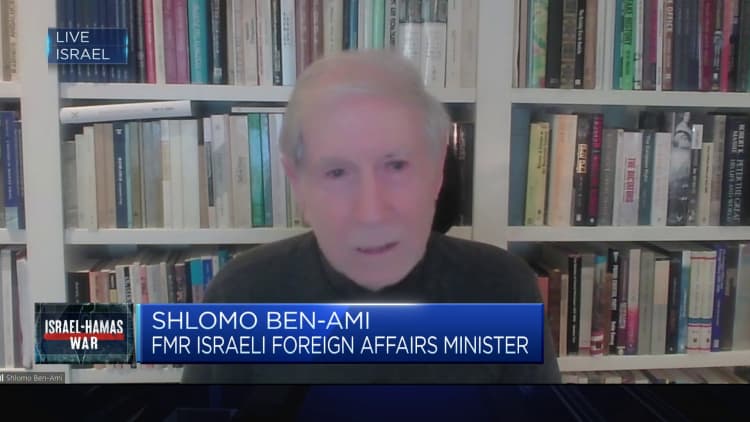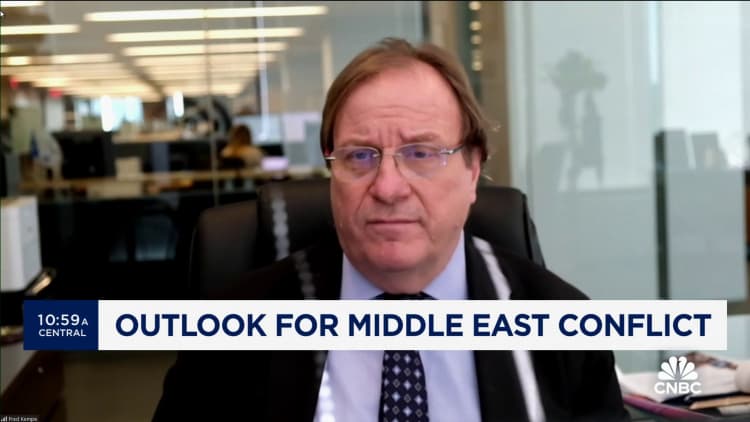South Africa's genocide accusation against Israel has placed further strain on an already frayed relationship with the U.S. and could have serious diplomatic ramifications.
The International Court of Justice, the U.N.'s highest legal body, will this week hear a case brought by South Africa that accuses Israel of committing genocide against Palestinian people during the assault on the Gaza Strip. The suit also seeks an emergency suspension of the military campaign.
U.S. National Security Council spokesperson John Kirby last week called the lawsuit "meritless, counterproductive, and completely without any basis in fact whatsoever," while Israel has rejected it as "blood libel."
This is the latest divergence in a series of diplomatic disagreements between Washington and Pretoria, which the U.S. sees as being too close to Russia and China.
In May 2023, when U.S. Ambassador Reuben Brigety accused South Africa of running guns for Russia via a mystery merchant ship, a South African inquiry found no evidence of the alleged arms shipment, but ties between the two historical allies remained taut.
Before that, Brigety and other U.S. officials had repeatedly criticized Pretoria for its policy of nonalignment regarding the war in Ukraine, which Washington interpreted as favoring Russia.

South African President Cyril Ramaphosa fiercely refuted the suggestion, and his government has since further clarified that it does not support Russia's invasion.
Yet Chris Vandome, senior research fellow at Chatham House's Africa Programme, told CNBC on Monday that the conflict in the Gaza Strip has erupted at a time when the U.S.-South Africa relationship is "at a low point."
"Over the past two years a succession of frustrations, including South Africa feeling it is being pushed on Russia-Ukraine, the U.S. Ambassador's statements on South African domestic security and on its relationship with Russia, and U.S. policy on China in Africa, have all contributed to the worsening of this relationship," Vandome said.
Though Africa's most industrialized nation has long been a "thorn in the side" of the White House as far as Israel-Palestine is concerned, Vandome suggested the latest divergences are compounding these frustrations.
"Debates in Washington regarding whether South Africa should continue to benefit from AGOA [the African Growth and Opportunity Act] have spurred diplomatic efforts from South Africa to protect its most important investment partners, but many in the county view such discussions as threats which only serves to harden ideological anti-western positions," he said.
Enacted in 2000, AGOA is a key tenet of U.S. economic policy in Africa that provides duty-free access to the U.S. market for more than 1,800 products across 32 eligible countries in 2024.
The Office of the United States Trade Representative stipulates that, in order to meet the rigorous eligibility requirements, countries must "establish or make continual progress toward establishing a market-based economy, the rule of law, political pluralism, and the right to due process."
"Additionally, countries must eliminate barriers to U.S. trade and investment, enact policies to reduce poverty, combat corruption, and protect human rights," the USTR states.
'Solidarity against apartheid oppression'
South Africa's close relationship with Russia is based on a multitude of factors past and present. Pretoria has repeatedly cited the USSR's historical anti-apartheid support, and there is a pragmatic impetus to maintain friendly ties with a fellow BRICS member.
During a visit from Russian Foreign Minister Sergey Lavrov last January, South African Foreign Minister Naledi Pandor said that BRICS countries should play a proactive role in the emergence of a "redesigned global order."
But the ruling African National Congress' support for Palestinian territories is different, Vandome explained, in that it is rooted in "solidarity against apartheid oppression" — a cause inextricably linked to the party's founding ideology.
"Support for Palestine has been a mainstay of ANC international relations policy since before the dawn of democracy, and it has been one of the few countries to take such a long and consistent position," he said.
"The entrenchment of support for Palestine within ANC party documents voted on and accepted at party conferences means that the President would be going against the will of the Party if he were to adopt a different position at national level, and this would leave him very politically exposed to detractors from opposing factions."

South Africa's elections this year are billed as the most significant since the dawn of democracy following the end of apartheid in 1994. The ANC faces a serious challenge from the majority-white main opposition Democratic Alliance and is projected to fall below the 50% threshold to govern for the first time in 30 years.
This opens the door to potential coalition discussions with smaller parties, and though foreign policy issues aren't typically a deciding factor in South African elections, the Israel-Gaza divide could complicate how these coalitions are formed.
"This issue could prevent a 'coalition of the centre ground' between the ANC and DA, which was a stronger possibility before the parties adopted divergent positions on this," Vandome said.
"Furthermore, it could impact party funding, with some businesses that had previously supported the ruling party now withholding support."

